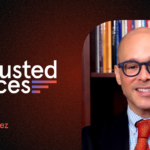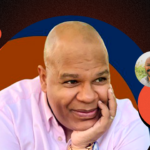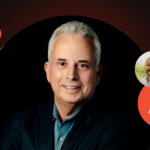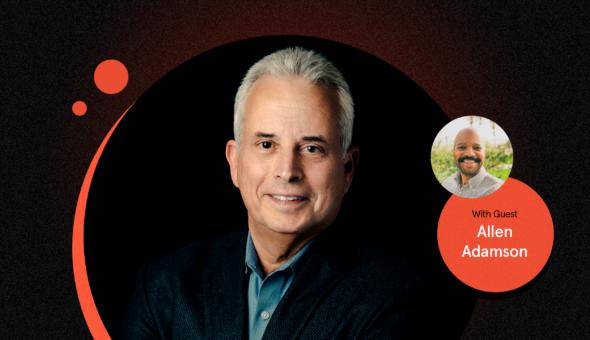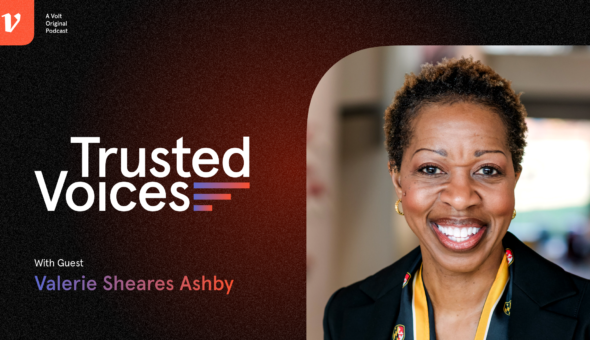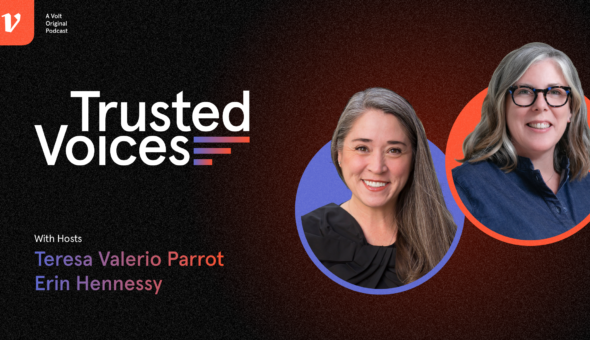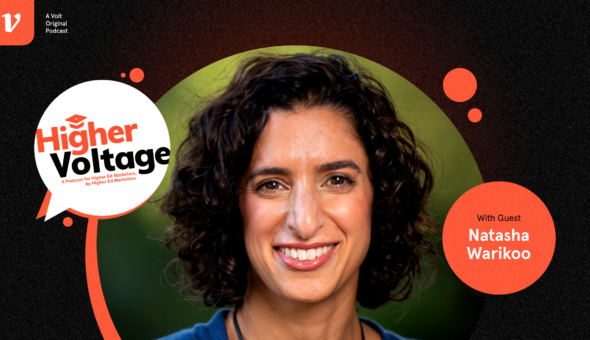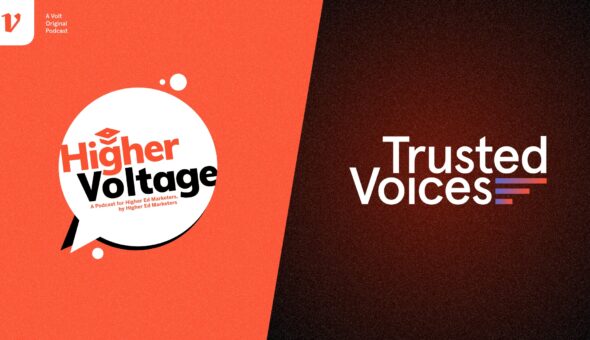Read the full transcript here
Erin Hennessy:
I can’t believe, Teresa Valerio Parrot, that this is the end of the second season of Trusted Voices, and that people other than my mother and your mother continue to listen to us just, you know, babble about stuff we care about. So, that is my backhanded way of thanking folks for sticking with us to the end of season two, and we’re excited to spend the summer thinking about season three, but…
Teresa Valerio Parrot:
Agreed.
Erin Hennessy:
Before we get on to that, we just sort of wanted to do a look back, look ahead episode and talk about some of the things we’re gonna be thinking about and I think we’re all gonna be talking about into the summer and fall. But I know you wanted to start with two very important congratulations.
Teresa Valerio Parrot:
Yes, especially for those who may not listen all the way to the end. I just want to give a really, really heartfelt and special shout out to Savannah Parrot, who graduated from Rice University with distinction. A mother has to say that, a couple of weeks ago, and I am so super proud of her. And y ‘all don’t ever get to see or hear her, but Nicole Reed is our producer and she’s fantastic. And I have a special shout out from her to Peyton Shupe, who just graduated from Boston University in archeology. So, I thought he was leaning a little bit more Harrison Ford, Raiders of the Lost Ark, but then Nicole shared with us that he might study paleontology and you shared…
Erin Hennessy:
That’s very Ross Geller.
Teresa Valerio Parrot:
Right, so we’ll see where he goes. But congratulations to Savannah and to Peyton. We wish you employment and successful careers. And know that you have a whole team of people who are proud of you.
Erin Hennessy:
Yes, that’s a wonderful way to kick things off. I have no graduation congratulations to offer except to, let’s stretch it, I advised four capstone students in the Georgetown PR and Corporate Communications Master’s program this semester and all four of them absolutely presented client-worthy communications plans. And all of them graduated a week and a half ago, two weeks ago by the time folks are hearing this. So Hoya Saxa, very proud of all of them and excited to hear what they do next.
Teresa Valerio Parrot:
Excellent. Both of those shout outs are the heart of what we do and why we do it. So kudos to everybody for their accomplishments.
Erin Hennessy:
Yes, indeed. So here we are…
Teresa Valerio Parrot:
Here we are!
Erin Hennessy:
Looking back at 2024, which I’m excited that maybe one day we’ll have a boring year. Clearly, spring semester 2024 was not that nor was fall semester. But we wanted to just sort of come together, talk about what we’re feeling and thinking about at the end of the semester and what we’re thinking about next semester. I will admit that I think I’m more in a gird-your-loins kind of mindset than even usual. And I’m usually the more pessimistic, cynical, I’m gonna say realist. That sounds too positive.
Teresa Valerio Parrot:
I’m an optimistic realist. How’s that?
Erin Hennessy:
But you’re usually, yeah, you’re the ray of sunshine, and I am the gird-your-loins person.
Teresa Valerio Parrot:
Well, my loins are girded right now, Erin, so this is a perfect time for us to have this conversation.
Erin Hennessy:
We’re gonna have to mark this episode explicit, I think, with all the loin talk, but… Things are gonna be loose today, friends. Things are gonna be loose.
Teresa Valerio Parrot:
Except for our loins apparently.
Erin Hennessy:
Okay, hard pivot! Teresa!
Teresa Valerio Parrot:
Pivot. Yes. Yes. I almost think we start with your topics because I think they’re top of mind for people, and mine are a little bit more planning-ish.
Erin Hennessy:
Yeah, the topic that is sort of top of mind for a variety of reasons this week as we record, which is the very end of May, is institutional neutrality. In the last two or three days, Harvard has made an announcement from one of their working groups that they appointed in the wake of some of the events on their campus that they will be pursuing a policy of institutional neutrality. I believe, was it Johns Hopkins that followed them yesterday? Somebody else jumped on board yesterday. And so I think institutional neutrality is going to be a topic that we’re going to be discussing and debating for the next couple of months. I have included in the show notes both some news coverage from the Crimson, but also an opinion piece from The Chronicle that is very, I think, anti-institutional neutrality and then a one pager from the Foundation for Individual Rights and Expression, which is very pro-institutional neutrality.
My concern is that we don’t live in a frictionless universe. If we did, I’d be gung ho on institutional neutrality. My concern is that people think this is the silver bullet and that this is going to protect them, get them out of trouble. It’s going to be something they’re going to be able to point to, to pivot out of all kinds of crises and crises in waiting. And I just don’t think there is any policy that we could put in place that is going to be able to do that.
But because, the sort of famous saying is that when Harvard sneezes, higher education catches a cold. And I think a lot of people are going to follow Harvard down this path, and really they’re following University of Chicago from a number of years ago down this path, and I just don’t think it’s going to be that easy, but I think there are going to be a lot of people who are convinced that this is the answer, this is the key and I just worry that going into the fall and going into the presidential election we’re setting ourselves up for failure if we put all of our eggs in the institutional-neutrality basket.
Teresa Valerio Parrot:
I agree with you. And I feel like there is often this pendulum swing where we see vulnerabilities and we see crises and potentially we see some downfalls of institutions or people and the pendulum swings significantly. And what feels like the easiest way to do that and is often, I think, a bandaid is let’s come up with a policy, and let’s just go ahead and implement that policy and that will solve whatever the bigger ‘it’ is.
And the it’s that we’re trying to solve are the relationships with people. We’re trying to solve culture issues. We’re trying to solve issues that are bigger than our campuses and are bigger than any of us as individuals. And a policy can’t erase the past, and it can’t create this unrealistic future. That’s not the point of policy. And I agree with you.
I also think there are a number of institutions that have had institutional neutrality policies, and they used them over the past year. And it would make sense for people to see how they did because a number of them had serious dings as well from their faculty and their staff and their students saying, “This still impacts us, and therefore, you have a responsibility to be talking about our reality.” And you can do that in a number of different ways. But I worry that just an institutional, institutional neutrality policy specific to statements or however you want to define that is going to be used not just as a silver bullet, but I would almost say as a crutch in other situations that we really have responsibilities to be leaders on.
Erin Hennessy:
Yeah. And I think that’s that’s the key to it, you know, we talk all the time about communications is not leadership, and policy isn’t leadership either. I also think, you know, we saw this during the Trump administration, around travel bans and things like that, that very directly tied to mission of our institutions.
But to your point, the conflict between Israel and Hamas and the humanitarian crisis in Gaza, as well as the war between Russia and Ukraine, as well as any number of things, are germane to what our institutions do. We are asking students to come to us to learn about history, the culture, the future of the society in which they live. And this conflict in particular, in Gaza, is one that is, I don’t think we’re going to solve it this week or next week.
Teresa Valerio Parrot:
Through a statement or not a statement.
Erin Hennessy:
Exactly. And I, and I just think it’s really hard to say this issue isn’t germane to mission when what we are saying is we are in the business of educating citizens of our society and of the world. And we’re going to say…
Teresa Valerio Parrot:
Right.
Erin Hennessy:
But not here, but not this, but not…
Teresa Valerio Parrot:
But not in those ways that make me vulnerable or I worry will make me unpopular. Because I think that’s part of what we’re trying to suss out here. And I also think we’re also in the business of sense-making.
Like that’s grace and sense-making are the two phrases that I’m using this year like nobody’s business because that’s what we do. And I think we need to be thinking about these topics in that way too.
Erin Hennessy:
Yeah, and I think to be real brass tacks about it, a lot of what institutions are worried about is what we’ve seen at Penn, what we’ve seen at Harvard, which is backlash from donors. And I don’t think that donors driving institutional decisions in this kind of way is a healthy thing for our institutions, our industry.
But because of the financial situation that a lot of our institutions are in, it’s a very, very real factor in leadership decision-making. And so it ties to all, this issue of institutional neutrality ties to so many of the things that we do and so many parts of our industry and parts of our institution. And, you know, again, I just come back to this is not the answer you think it’s going to be. And I imagine this fall is when we are going to discover the ways in which these policies don’t serve us and indeed in many cases probably will end up hamstringing us in areas we can’t yet foresee.
Teresa Valerio Parrot:
Right. And I would also say that as an industry, we aren’t neutral. That’s part of what higher education does. It provides resources and experiences. And through an education and through that credential, a leg up. We aren’t a neutral industry. And for us to pretend that we are actually is a fallacy.
And to your point, there is always the part of a policy that is what you intend. And then there are the gray spaces, there are the loopholes, and there is what you didn’t intend. And we are going to see some of these policies put through the wringer this next month, this summer, this fall, especially this election year, et cetera.
The only space where I haven’t seen, and even these leaders still receive some pushback, but they had something to tie that to is that public institution leaders in Iowa, based on, I’m not sure if it was legislation, but I know it’s either guidelines or law or policy, right, above them are not allowed to speak publicly on politically based issues. And so that, I think, opens a different can of worms about freedom of speech within academia based on the governing bodies within our states, right? Are they allowing campus leaders to speak on what they care about and what they’re passionate about? So that’s a whole different conversation.
Those leaders still received pushback, but it didn’t seem to be as significant as those campuses that already had institutional, I can’t say that word today, institutional neutrality policies before all of this kind of came to the forefront. They received quite a bit of pushback that they didn’t have the fortitude to lead some of these very important conversations and to say what they stood for or they didn’t.
So I’ll add to the show notes as well. I was just thinking about this. A piece from CASE Currents. There was a piece from a colleague of ours, Tracy Sweet, and she outlined their policy and the positive and pushback that they received this past year in implementing it.
Electric Kite ad read
Erin Hennessy:
You mentioned, we both mentioned a couple of times the presidential election. And I think this fall is going to be, you know, the technical term would be bananas. And I had this conversation with a faculty member yesterday, who, after he told me how much he enjoys the podcast..
Teresa Valerio Parrot:
Ooh, excellent. Shout out to you.
Erin Hennessy:
Shout out to us, talking about some areas where he feels strongly and has a historian’s perspective and lens to bring to some of these conversations that we’re having in higher education right now around academic freedom and around protest and around freedom of speech and what that really means and sort of all these big questions. And the one piece that he is really thinking about and that I really encouraged him to move forward with and nobody can steal this idea, this is Daryl’s idea, is talking about how college and university campuses, sort of like us, are bracing for the run up to election day in November. And he argues that that’s sort of the wrong position for institutions to be in, that we should be leaning into politics, that we should be leaning into talking with our students about what politics is.
And yes, the presidential election takes up a lot of oxygen in the room, but there are so many other levels of politics, small ‘p,’ politics that are important for our students to engage with as well. And so that’s sort of the mindset that I am thinking about the presidential election in.
And there’s a great resource that hit my inbox in the last day or so, from the Constructive Dialogue Institute. And I can’t remember, I know you and I have talked about this organization. I can’t remember if I’ve raised them on the podcast before, but they’ve got a great publication called the 2024 Election Guidebook, which we’ll also link in the show notes. And it’s a really interesting publication that aims to help leaders and faculty members and administrators help our students do some sense making around elections, around politics. How to have these conversations, not just brace for protests and counter protests or the college Republicans arguing with the college Democrats, but really to engage with the issues and to engage with the processes.
And I think that’s such an important frame to come back to, particularly for communicators. We’re paid to worry, and we’re paid to catastrophize on some level, and we’re paid to prepare for the very worst so that, should it happen, we’ve already thought it through. But I think it’s important to sort of pull back from this, I don’t know, existential dread we’re all sort of feeling heading into this election and really help our students reframe that too. Because some of us are old enough to know that the last couple cycles haven’t been exactly normal. But a lot of our traditional age students, these are some of the first times that they’re encountering the responsibility that they have and carry into the voting booth with them.
So, I’m trying to be a little more optimistic and take a page from the Teresa Parrot book. So I’m hopeful that we can have that larger conversation about the right mindset to walk into this election cycle with.
Teresa Valerio Parrot:
I think that’s smart and that’s definitely how I’m thinking about this. And you were talking about the fact that we are asked to talk about worst case scenarios, but we also pair that with solutions and I don’t want that to get lost. And I would encourage all of our colleagues to be thinking about what that pairing is.
I’ll put into the show notes where you and I will be this summer. I have a blog entry about that. Vacation and, you and I…
Erin Hennessy:
Vacation! Don’t tell anyone where I’m going though. Please. Thank you.
Teresa Valerio Parrot:
I won’t, but…
Erin Hennessy:
Thank you.
Teresa Valerio Parrot:
You and I have a number of speaking engagements coming up. And interestingly, yesterday, I finalized a third one that is talking about how to stay safe in this political environment in this election year. And here’s, spoiler alert, and come to the conferences and see that blog post. Spoiler alert, you can’t stay safe, but you can stay smart.
So let’s start to reframe this because people are looking for something that we can’t provide and we shouldn’t be saying we can. So instead, let’s reframe, give resources, be smart, come up with frameworks. What are we going to talk about? What aren’t? What are the boundaries of what we feel comfortable with? How are we encouraging energy around politics as a greater topic?
I just had a great brainstorming session with some of our colleagues on Tuesday. And I said, I want us to come up with a proactive plan that’s positive, around the election for one of our campuses. And we did exactly that. And by the time we were done, we actually were all smiling, and we booked it for 45 minutes. We went over an hour, and we were really excited about what we want to be pitching and talking about.
We’ll see if there’s the appetite for the outlets to cover it, but we need to start reframing this, and we need to be thinking about these really important foundational elements of our industry and our country differently than we’re doing it now. So thank you for the resource.
Erin Hennessy:
Yeah, absolutely. And then the last thing I’m going to share, I wanted to bring a little lightness to this conversation. One of the things that I think a lot of people know about me is that I’m a voracious reader and there are a number of voracious readers on our team. Christine Maloney is a huge fan of memoir. I know you read cookbooks like novels, which is still like a very strange thing to me.
Teresa Valerio Parrot:
Yes!
Erin Hennessy:
My, probably my two favorite genres and they’re very niche are bar memoirs, which are just, I could give you a list of so many phenomenal books, but really one of my very favorite genres is the campus novel. And there are so many of them and they are so good. So many that are really great. And so I pulled a list from Literary Hub, and we’ll link it in the show notes of the 60 best campus novels from the last 100 years. I think this was pubbed in 2022, so there’s obviously a bunch that have dropped since then. But for our colleagues who need a little diversion, but also maybe a little reminder that A, it could be worse, or B, it’s exactly as bad as you think it is, there are some really great books on this list.
So I am hopeful that folks who are listening will send us a note or shoot us a DM and let us know what novels are missing from this list that should be on there. I know last summer we threatened to do a book club.
Teresa Valerio Parrot:
I still think we should.
Erin Hennessy:
I know, I know. I just think we’d have a hard time narrowing down which book we wanted to do, but this might be a place to start to do some fiction in addition to some work-related reading. So, I wish everybody a happy summer and happy reading with these 60 novels.
Teresa Valerio Parrot:
Do you have anything that right now you’re really looking forward to reading?
Erin Hennessy:
From this list, I’m really looking forward to rereading a novel called Stoner, which is written by a guy named John Williams. And it is, I think it was published in the 50s, maybe. It’s sort of that sleeper campus novel that most people haven’t read. But when you say Stoner by John Williams to the people who have read it, it’s like this little secret society.
I mean, if you can see over my shoulder, the pile of books. That entire bookcase is my to-be-read pile, and then there are more also hidden throughout this house. So I’ve got a lot of reading ahead of me, as always.
Teresa Valerio Parrot:
That’s fantastic. I have two books that I am looking forward to. One is called, this is not an upper book, but it is a campus book. It’s called The End of College Football. And it comes out later this year. So this is a December read, but I have ordered it. And I just need to read you the description of this, the second paragraph of the description of this, because this is going to be a book. So this, The End of Football is by Nathan Kalman and Derek Silva. “By illuminating the plantation dynamics that make football a particularly racialized form of exploitation, the book makes legible the forms of physical sacrifice that are required, the ultimate cost in health and well-being, and the coercion that drives players into the sport and compels them to endure such abusive conditions.”
Erin Hennessy:
Send it to me when you’re done.
Teresa Valerio Parrot:
Right? Like I just got the chills reading that again because come on. Football’s going through it, but that is one of the books that I’m looking forward to. And I just wanted to give a shout out to that because seeing the pieces that these two scholars are putting out there and reading their social feeds, it’s going to be fire.
Erin Hennessy:
Can I throw, and this isn’t my usual bailiwick, but…
Teresa Valerio Parrot:
Yes. This isn’t your usual genre.
Erin Hennessy:
This isn’t my usual genre, but I also want to flag for folks and I’ve pre-ordered this one. I think it comes out later in June, mid-June maybe. It’s a book called The Price She Pays: Confronting the Hidden Mental Health Crisis in Women’s Sports, from the Schoolyard to the Stadium. It’s written by Katie Steele and Tiffany Brown with Erin Strout, who listeners to this podcast may remember from her days writing for the Chronicle of Higher Education. She’s a full time freelancer now and just a super smart observer of sports issues. She’s a runner and lives in Flagstaff and…
Teresa Valerio Parrot:
Yes, I follow her on social. She has some really good takes.
Erin Hennessy:
Yes, and this is a really interesting book, I’m excited to read it, that really digs into things like disordered eating, depression, anxiety, self-harm, including suicidal ideation, and really tackle some of these issues that the young women on our courts and on our fields are grappling with.
So I would add that to your list. I’ll send you this one when I’m done, if you send me the football one when you’re done. Thank you.
Teresa Valerio Parrot:
I promise. I promise. The other read I have, and this one I have in copy behind me, it’s called Thank You for Arguing. And the reason that I’m reading this one is we write a lot of op-eds, we write a lot of speeches, we do a lot of persuasive conversation pieces. And I am a big fan of making sure that it is on the side of persuasion and not coercion. And I’m a big fan of truth-telling. So any new ways that I can read about how to make an argument, in a truthful, compelling, and thoughtful way, I’m in for it. So, thank you for arguing.
Erin Hennessy:
You’re welcome.
Teresa Valerio Parrot:
And if it makes sense, because we were just talking about athletics, I would love to pivot to just something that I’ve been thinking about this last week and reading about. And of course, you all know I had to have a manifesto that I posted as well. And that is this historic settlement to pay college athletes.
So it is a proposal based on a lawsuit, it’s not final yet, but the NCAA and its member institutions, in Power Five football have come forward with what they think is a fair settlement going back and moving forward for what pay-for-play looks like in college athletic athletics. And I can’t not talk about that because it’s the heart of my dissertation. It’s the heart of what I’m thinking about, whether it’s the governance side of it, which is exactly my dissertation or it’s how we got here and why, and that’s the baseline of my dissertation.
And I am so curious to see what happens next and how we further create have and have nots. It used to be Division 1 versus 2 versus 3. And then within Division 1, it was Power Five versus none. And now that we’re adding in this pay to play, what does this mean for Title IX? What does this mean for student athletes more generally? What will graduation rates look like? What fundamentally will this say about the ongoing mission about the NCAA? Can they continue to exist based on this very poetic and lofty mission that no longer holds the same kind of credence? We’ve changed, athletics has changed, the dollars have gone up, and there’s a reality here.
Erin Hennessy:
That’s my biggest question is where institutions are going to find the money. And the cynical version of that question is what are institutions going to stop funding in order to find the money that they’re going to need to compete? And I mean, talk about unintended consequences and talk about the gray areas. This is a …
Teresa Valerio Parrot:
Well, so here’s the thing.
Erin Hennessy:
I think this like levels up my technical terms from bananas to a shit show in waiting. I have no idea what this is going to look like.
Teresa Valerio Parrot:
I don’t think that it was unintended consequences. This was not paying attention to how the world changed and how it should be governed and how we should be thinking about this. And I go back and I have, here are my books talking about this, I go back and think about the moments when this conversation should have been shifted by the NCAA and its leadership, by presidents, who by the way make up the leadership of the NCAA. And we missed all of those because we thought that the purity of sport argument was enough. And that’s not the world we live in. And more importantly, that’s not the student athlete experience that many of our student athletes received.
Erin Hennessy:
Yeah, no. And I think the unintended consequences, I think all of the consequences of the settlement are going to be, if not unintended, unimagined, because I think this is, you know, once again, to your point, we’re trying to fix something we should have been on top of years ago. And nobody knows what recruiting season is going to look like next year or two years from now or three years from now. I just, woof.
Teresa Valerio Parrot:
But this actually pivots to what my big list is, because Erin has seen my big list of what I want to talk about. And I think that we have so many of these moments like this, that if we go back and we look 5, 10, 15, 20 years ago, we have had those who are raising the flags and saying, higher education, look at these things. And we’ve had the ways that we’ve looked at them, and we’ve either addressed them or we haven’t, mostly because we’re scared, right?
And this is one of those moments for us to say, if this is happening in athletics, to this subset of institutions, what are these bigger issues that we should be talking about? And I’m gonna go back to the episode that we had in January, because those 10 most likelies, if you will, we called them New Year’s resolutions, but it really was a most likely list for us. What are we most likely to see and what should we be planning for? It holds to where we are now.
So we talked about the continuation of crisis palooza. Guess what? It escalated. Gaza-related issues on campus. Yep, we saw that, predicted it. We knew it was coming. Transparent campus conversations about finance. Governance conversations about athletics, NIL, and collectives. FAFSA delay impacts. Prioritizing professional development. AI integration and innovation. Election year spillover. Politics that are moving faster than our processes, policies, and procedures, and focusing on influencing climate and shaping culture. We nailed it. We are brilliant.
Erin Hennessy:
My god, we’re smart. We’re so smart.
Teresa Valerio Parrot:
We’re brilliant. But now is the time for us to think about what other resources do we have that we can be looking around those corners. And that’s my summer assignment for everybody. So here are some of the resources that I want to talk to all of you about. And I’m going to clump them quickly because I have a lot.
I saw, and I thought was interesting, a 2024 Higher Education Trends Report from Deloitte . I also saw the Top Strategic Issues for Boards in 2024 and 2025, which just very recently came out from AGB. Both of these are very recent. And I started to think about these.
And then I went back and I reviewed some items that we’ve talked about before, but I’m going to raise again and will be in show notes. The 2020 Trustee Index Survey from AGB, the 2024 Survey of College and University Presidents that Inside Higher Ed does. We had a whole episode on that one. The American College President, the 2023 ACE study.
And I went back to some scholarly work, including Exploring Involuntary Presidential Turnovers in American Higher Education, which is a piece that one of my favorite faculty members, Michael Harris wrote, along with one of my other professors, Molly Ellis, and this is about why presidents get fired.
Erin Hennessy:
You know you’ve done the program. So they will not retroactively increase your grades.
Teresa Valerio Parrot:
I know, I already graduated. I know. No, this piece is good. And I’m going to add in there a report from the Chronicle of Higher Education that was called Trouble at the Top. And that has a redo of the research that Harris and Ellis did. And they’re going to have a full journal article, but this is a recap of that.
Here’s why I’m listing all of those. That’s a lot. Then, Erin knows I love me something color-coded, because I love me something color-coded. I created a chart because of course I did. This is true.
And what I went through is what are these items listing as what should be top of mind for us, right? Or what are presidents saying are top of mind? What are boards saying are top of mind? And then juxtaposing that with where we have vulnerabilities. And this isn’t going to be surprising.
Obviously Deloitte is going to look at this in much more of a financial framework, but there was only partial overlap with what Deloitte was saying we should be looking at financially with what boards are looking at, partial overlap. And there was more of an overlap with what presidents worry about. But that doesn’t mean they’re doing something about it. But there were a whole bunch of issues that fell through the cracks and they overlap with what it is that we know we’re going to face and we could be vulnerable with.
So going to that, the redo of the voluntary or involuntary presidential turnover. In other words, is your president leaving on their own regard, or are they getting fired? The number of presidents and their departures fell into two categories: controversy, and the second was relationship failures, which often there is an overlap there. Controversy was athletics, financial information, financial situation for the institution, poor judgment, and fiasco. We can help with two of those.
Erin Hennessy:
I love that fiasco is a category.
Teresa Valerio Parrot:
You like fiasco? Yeah, well, it’s a thing, right?
So athletics and financial health, let’s be working on that. And let’s be thinking about how we coach up, down, and sideways presidents on the poor judgment and fiasco.
On relationships, we’re looking at loss of board confidence, loss of faculty confidence, loss of system confidence, and poor fit. All of those tie to governance, right? And that’s something that we can be working with our boards on and tie to communications. How are we talking about these things? What are our relationships and how are we moving forward together? We talk about the importance of rollouts, et cetera, and that sets up that fit conversation for the campus. And that is something the board determines.
So all of these are different things that we can be thinking about. So read these reports and think through what do I know, what don’t I know, and how can I be advising leaders to be stronger to address these situations? But I would also encourage us to be having some real conversations about those topics that, in my chart, is either in this financial outsider bucket, in this board bucket, or is in this presidential leadership bucket.
Erin Hennessy:
I also would just like to note, I am encouraging people to read novels, and you are encouraging people to eat their vegetables. And I think both are important. Balance is important. I just want to be people’s favorite. And so, so text me about the novels. Yeah. Yes. But no, I think that’s, I think that’s all.
Teresa Valerio Parrot:
Always, and as you know, here we are. Here we are, it is what it is.
Erin Hennessy:
But no, I think that’s, I think that’s all really important and what I would love to do is start season three by playing back that clip because I am guessing that, repression in a lot of ways, but I don’t think it’s, I mean, that’s the kicker, right? It’s not hard to see this stuff coming down the pike.
Teresa Valerio Parrot:
Agreed.
Erin Hennessy:
It’s not hard to see the eventual outcome of these issues that resurface and resurface and resurface and that we turn away from because it’ll make the faculty mad. It’ll tick off donors. It’ll tick off the book… All of these things that we, we often step away from because they are going to require leadership and hard choices.
And it feels really crappy to make hard choices right now. There is no medal for that. And that’s why I think leaders need all the support we can give them and they need all the encouragement that we can give them to do those hard things because, in the end, it’s sort of the existential choice that we all have to make.
Teresa Valerio Parrot:
Right. Well, I just want to highlight three areas because I think this is important. There was one area that only showed up very specifically in this Deloitte report, and I didn’t see it necessarily reflected in those other resources. That was intercollegiate athletics.
And I want to raise that because, again, as we talk about, sometimes we have to have the tough conversations we don’t want to have, like governance of athletics. And going back to the Harris and Berenger redo of the research, what I would say is, it’s one of the main reasons that presidents lose their jobs. Athletics is one of the main reasons.
So the area that was in the AGB document that wasn’t in kind of this external approach or some of these other leadership approaches was academic program mix. What are your academic programs? What is it that you’re highlighting? What is it that you’re doing?
So if that’s the case, that we want to talk about that as a board, but maybe we’re not talking about that in other spaces, let’s start having those conversations. Because that’s how you have votes of no confidence against presidents when they’re expected to look at the program mix and enact it, but they don’t have it on their radar screen and they’re not working towards it.
The next one that I would say is student retention. That was on the president’s side, but wasn’t in the board or in the external look. Student retention is going to be more and more important. Keep the students you have in addition to focusing on who you recruit and make sure that you’re making clear internally and externally, why.
So that’s my color-coded chart. It’s beautiful. It’s beautiful. There’s so much in there. That’s my highlight.
Erin Hennessy:
I think that people need a screenshot.
Teresa Valerio Parrot:
I’ll share that. And this is like when I shared my notes for the presidential survey. Lots of handwritten notes here.
Erin Hennessy:
Yeah, yeah, you are a fascinating creature. And it’s been great spending season two with you. See that flawless segue?
Teresa Valerio Parrot:
I know, that was fantastic.
Erin Hennessy:
Man, I’m gifted.
Teresa Valerio Parrot:
I can’t wait to come back and see how our looking ahead list, most likely list, and also this top of mind list plays out over the summer, ma ‘am.
Erin Hennessy:
Yeah, it’s gonna be, it’s gonna be a heck of a back nine on this year, you know? That’s a sports reference to golf. I wish everybody a wonderful and restorative summer and know that we’ll be back to continue raising these questions and hopefully providing some solutions and some answers or at least recognition that we’re all somewhat in this together.
Teresa Valerio Parrot:
Agreed. Please look at the list of where we’re going to be speaking and where we’re going to be, because we would love to chat with you. Let’s talk about these topics. Let’s have the conversations and start the hard work.
Erin Hennessy:
Yep. Okay. That’s it for today. Thanks TVP and thanks to Nicole, DJ Hauschild and Maryna and the entire team at Volt. We have loved doing this second season and we’re looking forward to season three and thanks to all of you for listening.
Teresa Valerio Parrot:
Thank you.
Teresa Valerio Parrot:
Thank you for joining us for this episode. You can find links in the show notes to the topics and articles referenced as well as a copy of the show’s transcript on the Volt website, voltedu.com. Remember, that you can always contact us with feedback, questions or guest suggestions at trustedvoices@tvpcommunications.com.
Be sure to follow Trusted Voices wherever you get your podcasts, and we invite you to check out Higher Voltage, another podcast on the Volt network that is hosted by our great friend, Kevin Tyler. Kevin explores the evolution of higher education that is happening right before our very eyes.
Until next time, thanks to Erin Hennessy, DJ Hauschild, Aaron Stern, Nicole Reed and the Volt team for a great episode. And thank you for listening.
